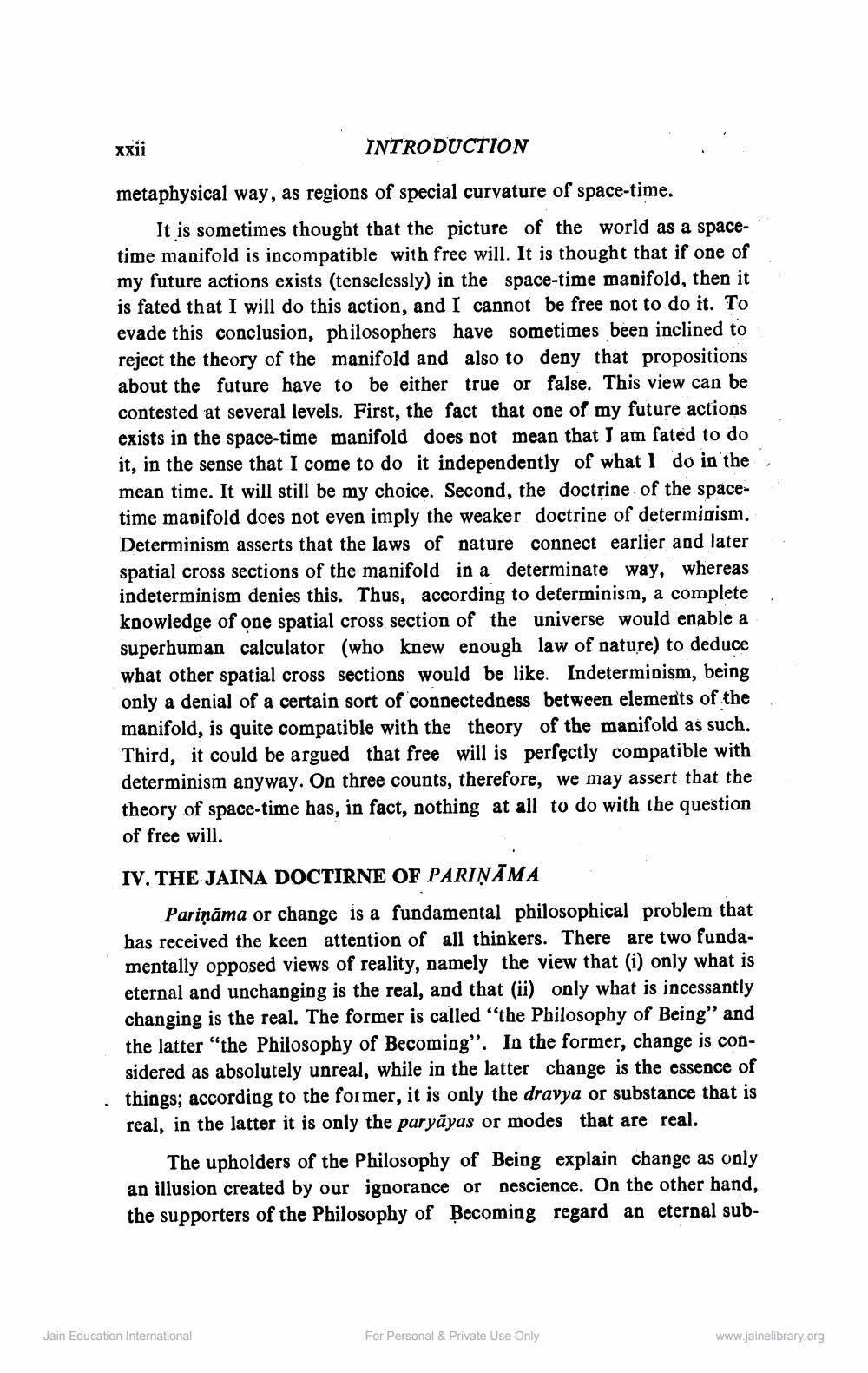________________
INTRODUCTION
metaphysical way, as regions of special curvature of space-time.
It is sometimes thought that the picture of the world as a spacetime manifold is incompatible with free will. It is thought that if one of my future actions exists (tenselessly) in the space-time manifold, then it is fated that I will do this action, and I cannot be free not to do it. To evade this conclusion, philosophers have sometimes been inclined to reject the theory of the manifold and also to deny that propositions about the future have to be either true or false. This view can be contested at several levels. First, the fact that one of my future actions exists in the space-time manifold does not mean that I am fated to do it, in the sense that I come to do it independently of what I do in the mean time. It will still be my choice. Second, the doctrine of the spacetime manifold does not even imply the weaker doctrine of determinism. Determinism asserts that the laws of nature connect earlier and later spatial cross sections of the manifold in a determinate way, whereas indeterminism denies this. Thus, according to determinism, a complete knowledge of one spatial cross section of the universe would enable a superhuman calculator (who knew enough law of nature) to deduce what other spatial cross sections would be like. Indeterminism, being only a denial of a certain sort of connectedness between elements of the manifold, is quite compatible with the theory of the manifold as such. Third, it could be argued that free will is perfectly compatible with determinism anyway. On three counts, therefore, we may assert that the theory of space-time has, in fact, nothing at all to do with the question of free will.
IV. THE JAINA DOCTIRNE OF PARIŅĀMA
Pariņāma or change is a fundamental philosophical problem that has received the keen attention of all thinkers. There are two fundamentally opposed views of reality, namely the view that (i) only what is eternal and unchanging is the real, and that (ii) only what is incessantly changing is the real. The former is called “the Philosophy of Being” and the latter "the Philosophy of Becoming". In the former, change is con
sidered as absolutely unreal, while in the latter change is the essence of · things; according to the former, it is only the dravya or substance that is
real, in the latter it is only the paryāyas or modes that are real.
The upholders of the Philosophy of Being explain change as only an illusion created by our ignorance or nescience. On the other hand, the supporters of the Philosophy of Becoming regard an eternal sub
Jain Education International
For Personal & Private Use Only
www.jainelibrary.org




